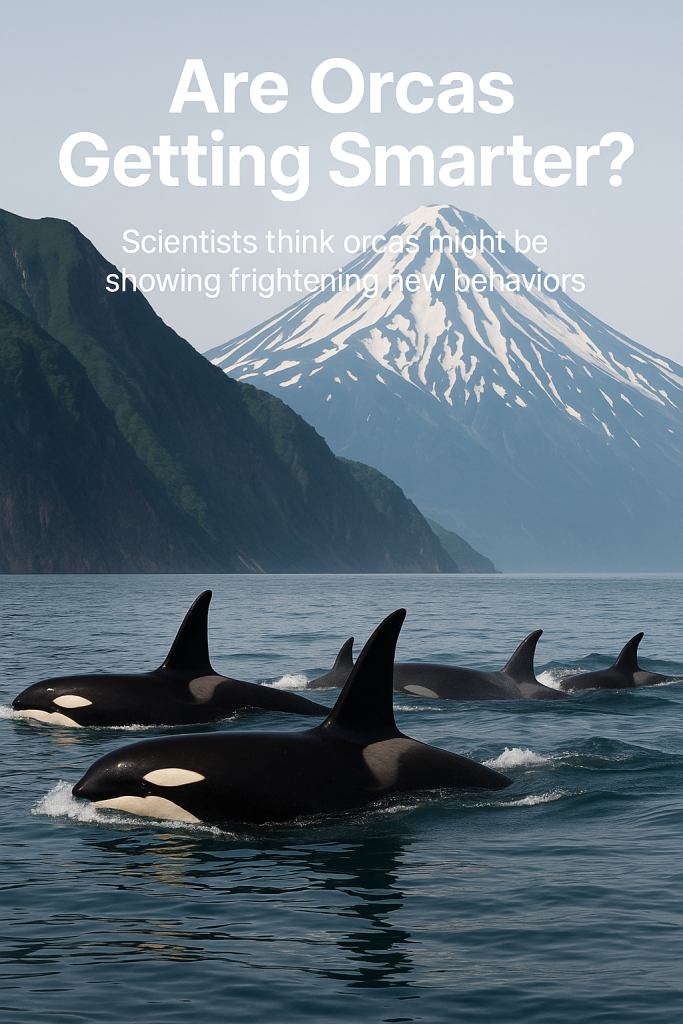Recent scientific observations have revealed that orcas, also known as killer whales, may be exhibiting signs of increased intelligence, marked by a suite of unusual and at times disturbing behaviors. Researchers studying these apex marine predators in various parts of the world have noted a shift in their interaction patterns, raising intriguing questions about the cognitive evolution of these enigmatic creatures.
Orcas have long been celebrated for their complex social structures, sophisticated hunting tactics, and remarkable communication skills. Now, in 2024, marine biologists and behavioral scientists are documenting behaviors that could indicate an escalation in problem-solving abilities, strategic thinking, and perhaps even a form of cultural adaptation previously unrecognized.
Unprecedented Aggression and Novel Hunting Techniques
One of the most startling developments reported involves an increase in aggressive actions towards both prey and potential threats. Scientists have recorded instances of orcas employing unexpectedly strategic hunting methods, such as coordinated attacks on large prey beyond their usual diet, indicating advanced planning and group coordination. In some cases, these behaviors border on the frightening — orcas have been seen overturning boats and displaying aggression near coastal areas, behaviors that were historically rare or uncharacteristic.
Some experts suggest that these aggressive displays are a byproduct of heightened cognitive abilities, enabling orcas to adapt rapidly to changing environments, including increased human activity in their habitats. This enhanced intelligence might be triggering a reevaluation of traditional behaviors, making them more unpredictable and potentially dangerous.
Cognitive Growth Could Be Linked to Environmental Pressures
Researchers hypothesize that escalating environmental pressures, such as climate change, pollution, and shifting prey availability, are driving orcas to develop novel survival strategies. The need to navigate increasingly complex ecological challenges may be catalyzing cognitive advancements. This is comparable to how other species evolve adaptive behaviors when faced with new threats or altered habitats.
Key findings from recent studies highlighted how orcas are now experimenting with new vocalizations and communication patterns, possibly enhancing their ability to coordinate and innovate during hunts. Some pods have been observed teaching younger members these new behaviors, suggesting the evolution of cultural transmission and social learning mechanisms.
Implications for Conservation and Human Interaction
This surge in orca intelligence and the accompanying behavioral shifts have profound implications. Conservationists express concern about the potential for increased human-wildlife conflicts. With orcas becoming bolder and exhibiting aggressive behaviors, encounters with marine vessels and fishing operations could become more hazardous.
Meanwhile, marine scientists emphasize the importance of understanding these developments in the broader context of ocean ecosystem health. The intelligence of orcas positions them as critical indicators of environmental change, and their evolving behaviors may reflect deeper alterations within marine food webs.
Looking Ahead: Monitoring a Rapidly Changing Species
Ongoing studies aim to monitor these newly emerging patterns among orca populations worldwide, combining underwater acoustic analysis, drone surveillance, and behavioral observation to deepen insights. Researchers are calling for increased funding and collaborative international efforts to track orca intelligence trends, hoping to predict and mitigate negative outcomes while appreciating their remarkable cognitive abilities.
In sum, orcas appear to be entering a new chapter of intelligence and adaptability, marked by behaviors that are as fascinating as they are disconcerting. This development challenges previous notions of their cognitive limits and reminds us of the complex, dynamic lives of the ocean’s most formidable predators.



